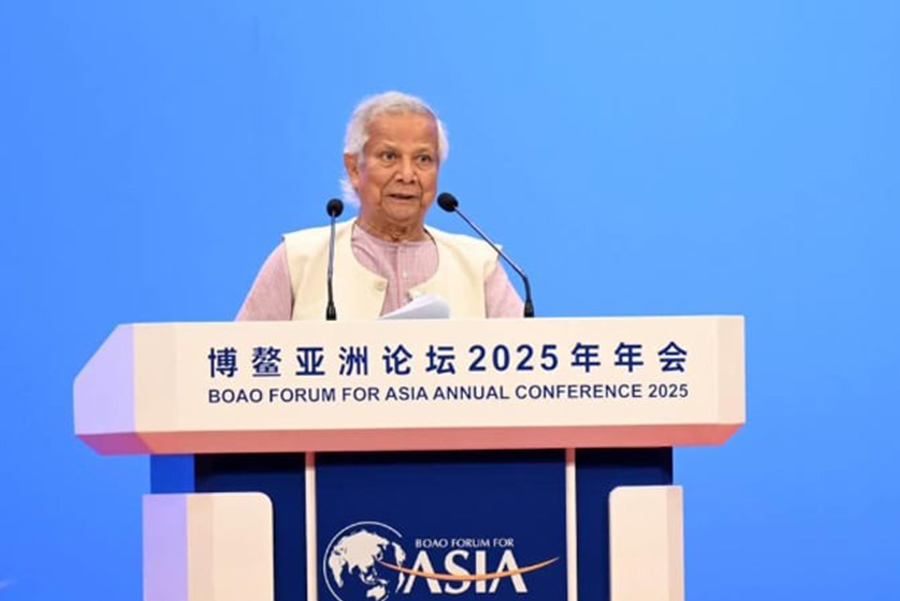
Published :
Updated :

Chief Adviser Professor Muhammad Yunus has stressed the need to shift toward sustainable economic models that prioritize people and the planet over profits.
"We must shift toward sustainable economic models that prioritize people and the planet over profits," he said while addressing the opening plenary of the Boao Forum for Asia (BFA) conference in Hainan on Thursday.
The theme of the conference is "Asia in the Changing World: Towards a Shared Future."
Prof Yunus said human civilization is at risk as people continue to embrace self-destructive economic values.
The dominant economic model thrives on limitless consumption and justifies over-extraction of resources and environmental degradation in the name of growth, he said.
Mentioning that the climate crisis poses an existential threat to humanity, the chief adviser said that in the Asia-Pacific region, climate disaster-related economic losses are already enormous, amounting to US$ 65 billion.
He said climate-vulnerable countries like Bangladesh are forced to divert resources toward disaster response, limiting investments in productive sectors.
"We need new, additional, accessible, non-ODA, non-debt-creating, grant-based climate finance, with an equitable distribution between adaptation and mitigation," he added.
Prof Yunus said universal access to life-saving medicines and technologies must be guaranteed.
He said the Covid-19 pandemic was a wake-up call, highlighting deep inequities in global health systems. Asia should take a united stance in the ongoing negotiation of the Pandemic Treaty, he said.
Pointing out the advancement of technology, Prof Yunus said that rapid strides in data-driven technology, robotics, quantum computing, and artificial intelligence are shaping the world.
Lower capability, capacity, and resource mobilization in Asia compared to advanced economies could further widen the digital divide, he observed.
Data sovereignty and security are critical concerns, he said, adding that if technology evolves irresponsibly, it could pose existential risks.
Asia must close the digital divide and build regional capacity in technology, innovation, and incubation, he added.


 For all latest news, follow The Financial Express Google News channel.
For all latest news, follow The Financial Express Google News channel.